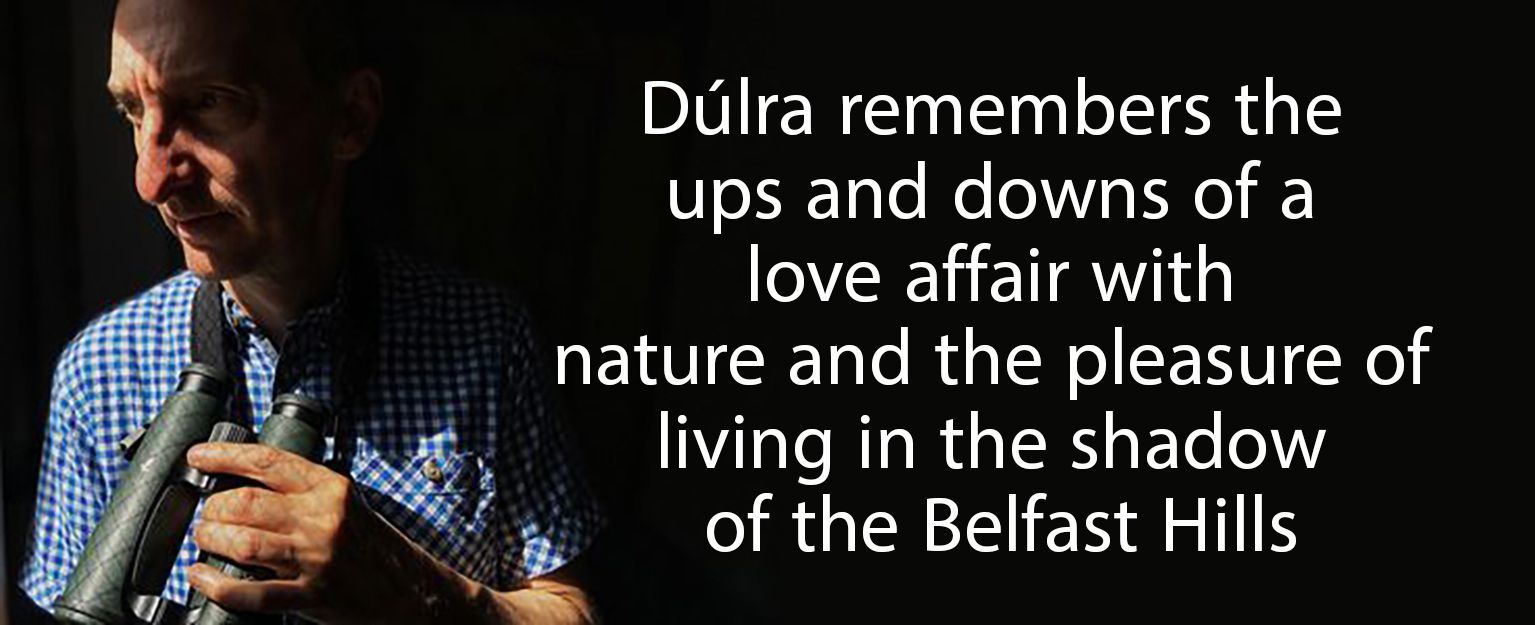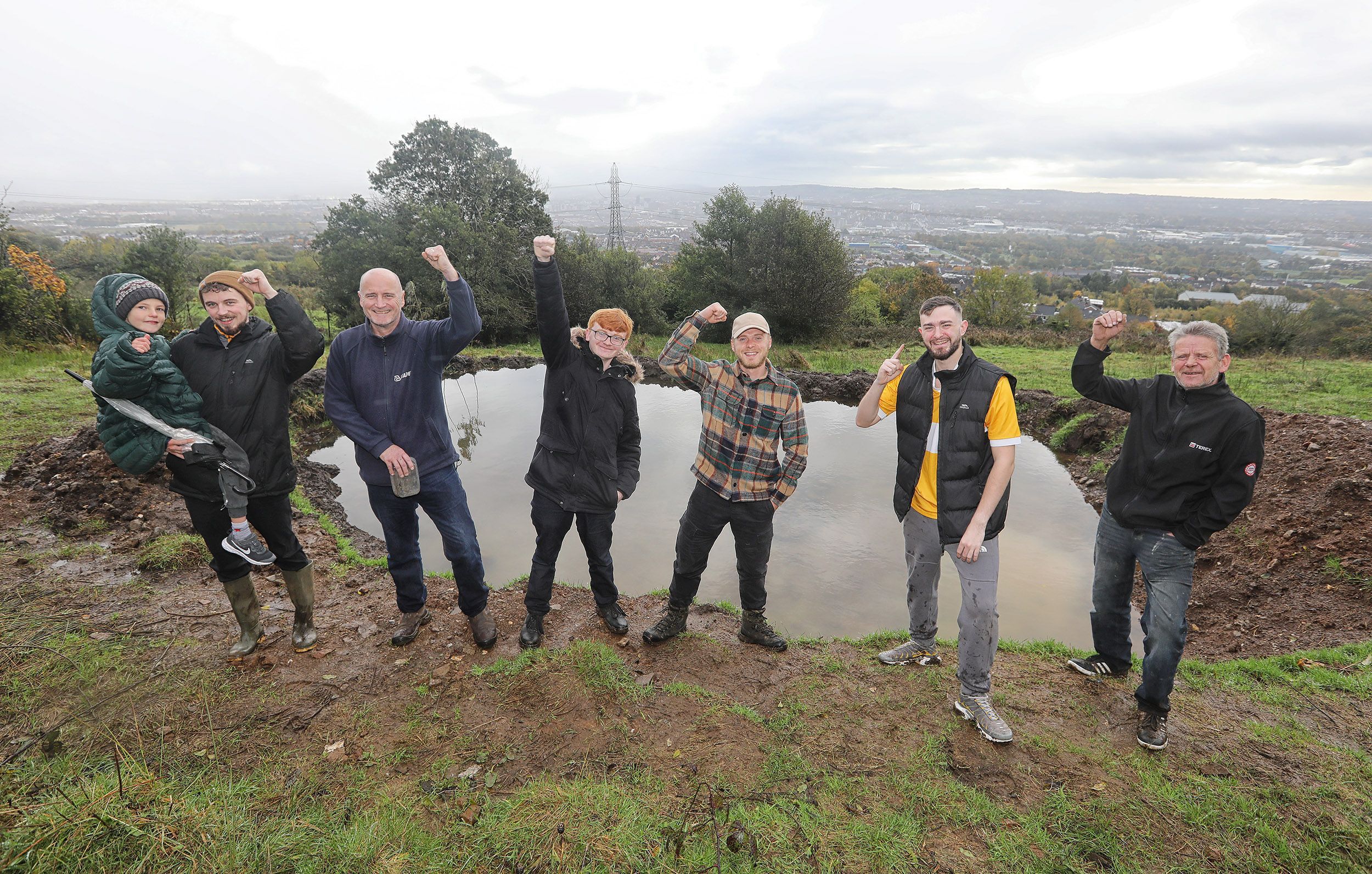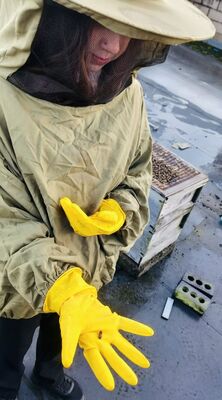You’ll find plenty to celebrate in this half-century supplement championing not only this great community paper, but the community that it served. It’s a half-century journey of triumph over adversity in so many areas of life.
Dúlra would love to be able to add to this general feelgood atmosphere, but when it comes to the environment, Greta Thunberg is right. It’s in a state of absolute crisis. But Dúlra is torn between two worlds.
He feels he has to highlight the incessant deterioration of our countryside, but he also has to celebrate the new generation who fully understand the importance of nature and whose successes are reported week after week in the news pages of this paper. And it’s the passionate determination of our young people about the environment that will surely triumph.
They know the importance of nature in a way their parents and grandparents, by and large, didn’t. No matter how cold it is, you’ll find young people on our hills and in our parks planting trees, volunteering for litter lifts or even digging out ponds on our hillsides.
Unlike Dúlra’s generation, they know that the survival of nature is intertwined with their own survival. In simple terms, if the bees vanish, the human race won’t be far behind them. In the 1970s, schoolboy Dúlra collected birds’ eggs – as did all his mates.
It’s impossible to measure the damage we did, each teen with scores of hollowed out shells resting on sawdust in old chocolate boxes or biscuit tins, usually kept under the bed. We never once thought it was wrong – in fact it wasn’t much different from the attitude of the gentry a century earlier who shot every bird they could find, stuffing them for their private collections.
You could fill a book with the fabulous birds that were shot into extinction in Ireland, from the bittern that features in so many Irish language songs and poems, to the crane and the eagles and the ospreys. The good news is that not a single young person today would ever consider doing something so damaging as collecting birds’ eggs.
They’re much too aware of the importance of the natural world. For the last half-century, nature has been collateral damage as we put our own welfare and wants before everything. Even in the last few years, many hedgerows around Belfast have been chopped down.
There’s one incident from Dúlra’s youth that perhaps more than any other highlights how much things have changed. It was the day he actually got his hands on a bird that today is considered one of the most endangered in the world.

It’s hard to believe that the rare corncrake bred, not just on the Belfast Hills – from Dúlra’s street you could hear them calling – but in the city itself in places like Horner’s field beside the Gaeltacht homes, on Stockman’s Lane and Smicker’s field which is now Coolnasilla.
One day, the young Dúlra answered a knock at the front door to find two boys, even younger than him, holding a cardboard box. “Are you the guy who keep birds?” one of the asked. Dúlra said he did – in the shed he had zebra finches, canaries and an an assortment of wild birds he’d managed to trap.
“We found this down in Smicker’s field and we think it’s injured,” they said. Dúlra peered into the box and saw a… corncrake! He put it the aviary overnight before taking it back to Smicker’s field and releasing it, apparently unharmed. Today, of course, you’ll have to go to the western fringes of Donegal to hear the corncrake’s famous call.
If there’s a story that better illustrates how nature in West Belfast has changed, he’s yet to hear it. Of all the adventures Dúlra reported on, the obituary he wrote for terrier Shep always stands out as a great tail, sorry tale.
Dúlra can safely say it was the first obituary for a dog ever printed in the Andersontown News – before or since! Mountain man Steek Megaw’s beloved dog was killed on the Glen Road – and truth be told, it was no surprise to us.
Because Shep loved those hills so much that when we had walked the legs of ourselves and decided to head back home, Shep simply refused. We’d whistle and holler and cajole, but to no avail.
So we’d just leave him up there all in his own, chasing rabbits though ditches until he tired himself out and returned of his own accord, hours later when darkness fell and he was exhausted. But without a person to see him across the busy Glen Road on a lead, it was always treacherous – and one day he paid the ultimate price.
Two stories about Shep stood out for Dúlra which demanded mention in his obit. One Sunday, after Dúlra and Steek traipsed all over Black Mountain, we went home without him, as usual. He’d return that night, we thought. But he didn’t. Nor the next day.
Three days later, Steek appeared at the door. He’d have to head back to the mountain, retrace our steps and hope to find some sign his beloved dog. It was teeming and for a moment Dúlra considered saying no and letting Steek go on his own.
But he couldn’t let him down. And so, wet and miserable, we zigzagged our way to the summit once more, calling and whistling. We’d shout his name down rabbit warrens and badger sets. It was futile, Shep was clearly gone. And then… a faint yelp came from one of the old badger sets now used by rabbits at the summit. Shep was down there, stuck.
‘Belfast from Black Mountain’, 2021, oil on linen, 55x60in pic.twitter.com/E8L76jBVsA
— Colin Davidson (@colin_davidson) July 22, 2021
We walked to the nearby quarry and borrowed two long-tail shovels off the watchman and started to dig. The crater we excavated can still be seen from space, along with Great Wall of China. Dúlra remembers finally seeing Shep’s face trapped between two boulders. Steek reached deep down and freed him.
Shep was as skinny as a rake and as weak as water. But he was alive! We took him home – on a lead – both of us covered from hair to toe in muck.
Another time young Dúlra was getting the number 13 bus into town one Saturday afternoon when he realised Shep had followed him on and was sitting under the seat.
The town was so busy that Dúlra lost him in the crowds, and had the whole bus journey back home to think about how he was going to explain losing Shep to his owner.
Dúlra was sweating blood walking up to Steek’s house – how could you explain taking someone’s dog all the way into town and then losing it? And as Dúlra approached the front door, who was sitting there but Shep.
And do you know what? When a delighted and relieved Dúlra shouted “Shep!” the dog just looked the other way, as if to say, You’re dead to me! Anyway, it’s been an honour to write about the environment for this newspaper for 31 years now.
The last half-century has seen unimaginable changes in West Belfast society, but the new awareness of environmental issues among young people is perhaps the most overlooked.
But it could well be, at the end of the day, the most significant of them all.
Go raibh maith agaibh.







